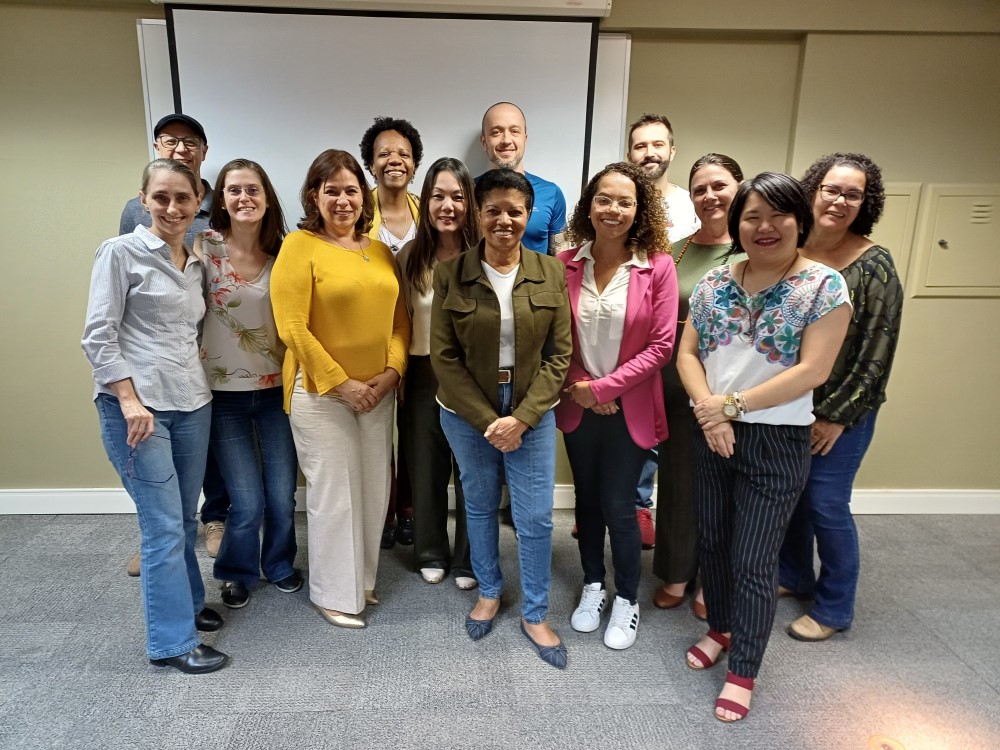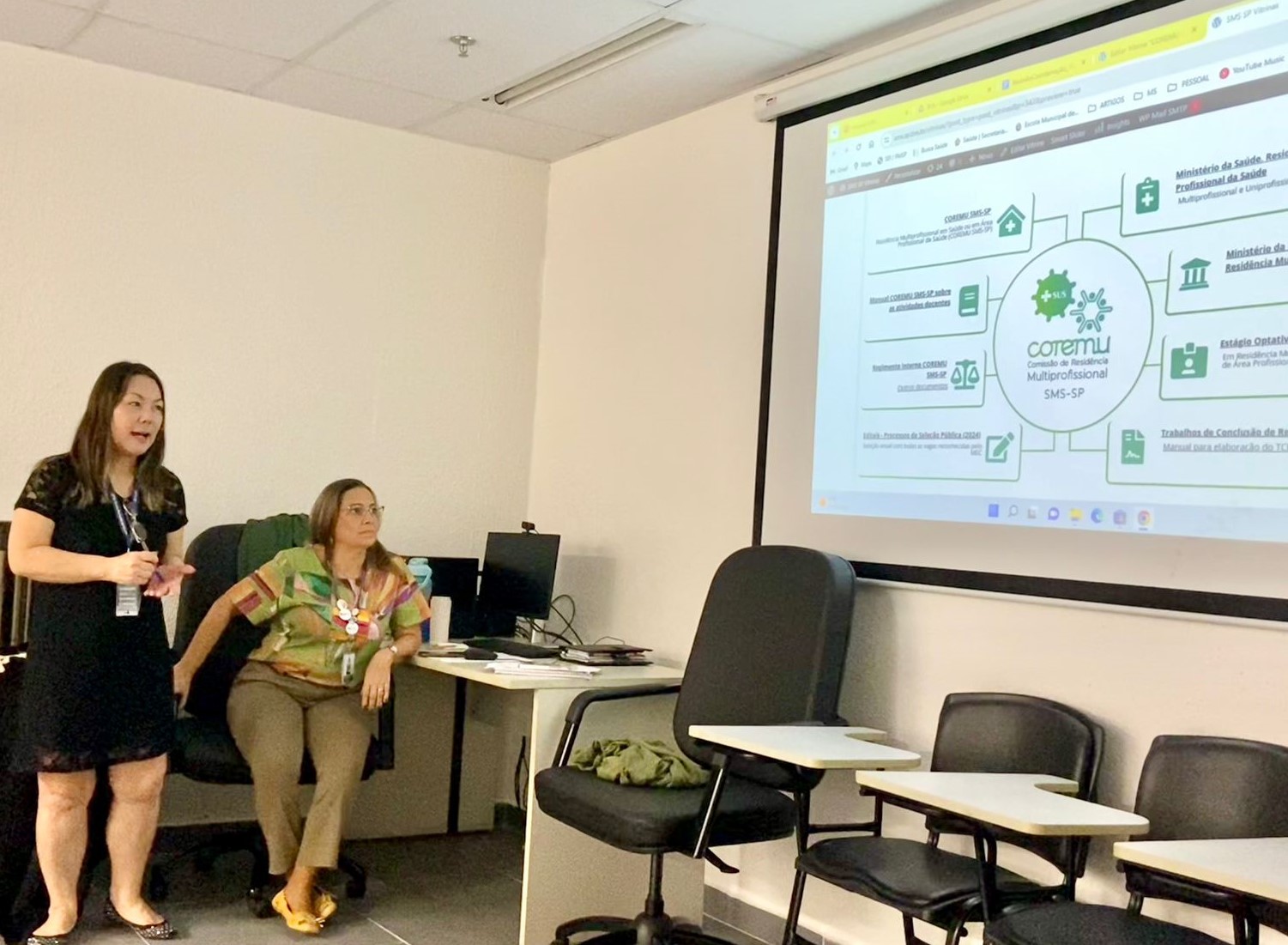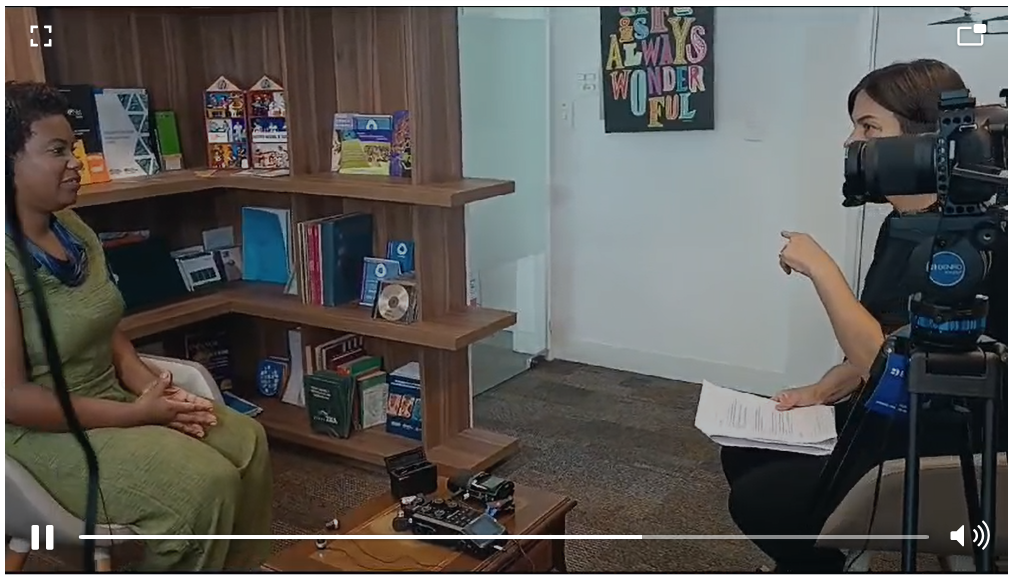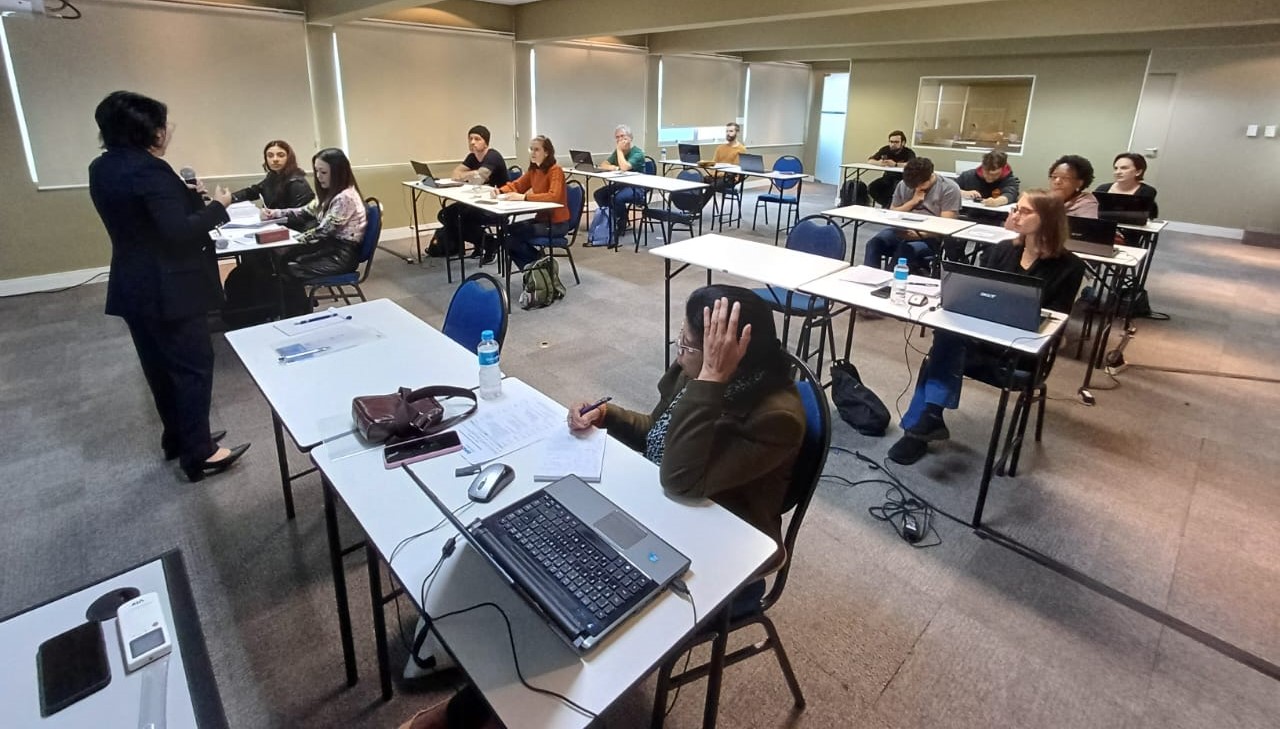The Latin American and Caribbean Center on Health Sciences Information (BIREME/PAHO/WHO), in cooperation with the São Paulo Municipal Health Secretariat (SMS-SP), continues to make progress in maintaining, updating and developing the SMS São Paulo Virtual Health Library (VHL). In the first half of 2024, various activities were carried out, including the publication of a new Window of Knowledge, the recording of four new Experience Reports and a training workshop for SMS-SP’s technical areas. These efforts are part of the Technical Cooperation project, in Phase III of the agreement established between the institutions in 2020, which aims to consolidate and strengthen local information and knowledge management capacities.

New Window of Knowledge
One of the main initiatives of the current phase has been the development and publication of a new Window of Knowledge on “COREMU – Multiprofessional Residency Commission“, in accordance with the procedures of the methodology developed and applied by BIREME. To this end, the following activities were carried out: a) Mapping and selection of information content to make up the “Showcase of Knowledge; b) Definition of the information architecture, organization structure and systematization of the selected content; c) Creation of the visual identity, including color palette, typography, graphic designs to support the content and others; d) Creation of bibliographic searches in the VHL for the specific themes; e) Uploading of all the content on the online platform, including corresponding links; and finally, f) Publication of the Showcase with its respective registration in the LIS. All these stages were exchanged and validated with the project’s counterpart (photo below).

SMS-SP’s Experience Reports
The teams have made progress with the recording and production of four new Experience Reports videos, as listed below. BIREME has also produced an instructional video entitled “Tips on how to behave in front of the cameras“, with the participation of COREMU staff at SMS-SP.
The topics of the reports recorded in 2024 were:
- Fighting the COVID-19 pandemic: an experience report from the management of the Ignácio Proença de Gouvêa Municipal Hospital in Mooca;
- Our main experiences in the municipal Mobile Pre-Hospital Care service in the city of São Paulo – from APH to APH 192 and now SAMU 192;
- Life story with Nursing (see photo below);
- Multiprofessional Health Residency Commission of the São Paulo Municipal Secretariat: a report on affirmative actions.

Training for skills development
Training sessions on registering scientific and technical publications in the SMS-SP VHL databases were held in May, with the participation of professionals from various SMS-SP technical areas (see photo below). The methodology combined theory and practice, with practical exercises carried out directly in the system. On May 21, the focus was on bibliographic records and notions of database indexing. On May 22, the Website Catalogue (LIS), the Events Directory (DIREVE), Multimedia, Experience Reports and Windows of Knowledge were covered.
The event was attended by 12 representatives from institutions such as the Municipal Health School (EMS), Vila Nova Cachoeirinha and Campo Limpo Hospitals, the People Management Coordination Office (COGEP), the Health Surveillance Coordination Office (COVISA/DVZ), and the Health Region Coordination Offices CRS-Center, CRS-West, CRS-South and CRS-East. Each participant brought examples of documents, selected according to the selection criteria established by the SMS-SP VHL for registration in the respective information source.
Furthermore, with the aim of promoting the continuous improvement of the activities coordinated by BIREME, the participants answered an evaluation survey, measuring the effectiveness of the training and identifying strengths and weaknesses, and including the collection of comments and testimonials from the participants, which can be seen below. The results of the survey showed that the overall evaluation was positive, with 58% of the participants giving it top marks. Most participants considered the face-to-face format to be adequate, and indicated satisfaction with the methodology, the venue, the knowledge of the speakers, the practical activities, the clarity of the information, the dynamics of the practical exercises and the group interaction.

Testimonials from workshop participants
Edenir Aparecida Sartorelli, nurse, CRS-West
“I work at the Municipal Health School of the Western Regional Health Coordination (CRS-West), in permanent education. This training and the discussion of this topic allow us to broaden our view of what can be disseminated, what we need to give visibility to, what outputs of the territory or the secretariat need to be disseminated or have greater visibility, and how to organize this information, these outputs, in a way that facilitates their use on the VHL platform. So, I believe that the relevance is organization, stimulation, dissemination and, in short, the expansion of knowledge, putting knowledge into action.
In our collection, we have worked on completing residencies and specializations in nursing. We also have reports on the experiences of professionals with their equipment, in other words, in the daily practice of their services. We also produce protocols, healthcare flows, videos, training courses, online courses, and many events, among others”.
Hernani Correa Medola, librarian, COVISA/DVZ
“I think this type of training is key because it enables us to make the information developed and produced within the secretariat more accessible to the entire population, which is the main purpose of our service, to give visibility and make this information accessible. This kind of training helps with standardization and the quality of records.
I’m a librarian at the Zoonosis Surveillance Division of the Health Surveillance Coordination (COVISA). Our collection has a multitude of documents, ranging from books, bibliographic material, to reports, manuals, educational material, which is distributed to the population. So, everything that is produced by the Zoonoses Surveillance and Health Surveillance are the materials that make up our collection.”
Marine Arakaki, librarian, Municipal Health School, Coordination of the SMS-SP VHL
“I think this version of face-to-face training was very important. Compared to the previous versions, which were online, in 2022 and 2023, we had a slightly smaller number of participants. However, as it was the first training course after the change of management system to the FI-Admin platform, it was very important that we held face-to-face training. Even so, there were only a few librarians who had this knowledge and close contact with the tool.
And the SMS-SP VHL network is made up of health professionals who are not information professionals, so they need more attention to understand the methodology, fill in the records and define the type of document. And in this respect, I think that BIREME’s training, together with the other colleagues who were present with us, was necessary. There was discussion, people raised their doubts, criticisms, suggestions, in short, I thought it was very useful.”
Tamara Leite Cortez, veterinarian, COVISA/DVZ
“The importance of this type of training is so that, in fact, we can make the records properly, so that they are retrievable and, with that, give visibility to the production, in our case, of COVISA, which is the cooperating center of which I am a member. In fact, BIREME’s training courses always meet my expectations, and this is not the first. I’ve been following the SMS-SP VHL project since its inception in 2009. What I’ve noticed over time is that, despite the turnover of professionals who act as the VHL’s focal point, we’ve managed to see this VHL growing and changing, adapting to today’s conditions.
And that’s where I think the beauty of health information lies in being able to show what we do. Because, as a health professional, I’m a veterinarian, we work a lot and have little time to show what we do. And the VHL gives us this opportunity to democratize information, to have free access to information and, often, to replicate what we do in the units in São Paulo, which have such diverse realities, in other Brazilian states, but, above all, in other countries.”
Operational maintenance and new planning
During the semester, BIREME provided ongoing technical and methodological support for the regular operation of the SMS-SP VHL portal. The progress achieved reflects BIREME’s and SMS-SP’s commitment to promoting the efficient management of knowledge and health information. The activities developed consolidate the VHL SMS São Paulo as a vital space for the dissemination of the scientific and technical production of the Secretariat, contributing to the continuous improvement of health services in the municipality of São Paulo.
The results of the period can be found in a Technical Report delivered by BIREME to SMS-SP in the first week of July 2024. In addition to consolidating and validating the developments and deliveries made during the period, the document marks the end of the third year of the current phase of the agreement, and includes the planning of activities for the next half of the year.
For more information, visit the SMS-São Paulo VHL portal, https://sms.sp.bvs.br.